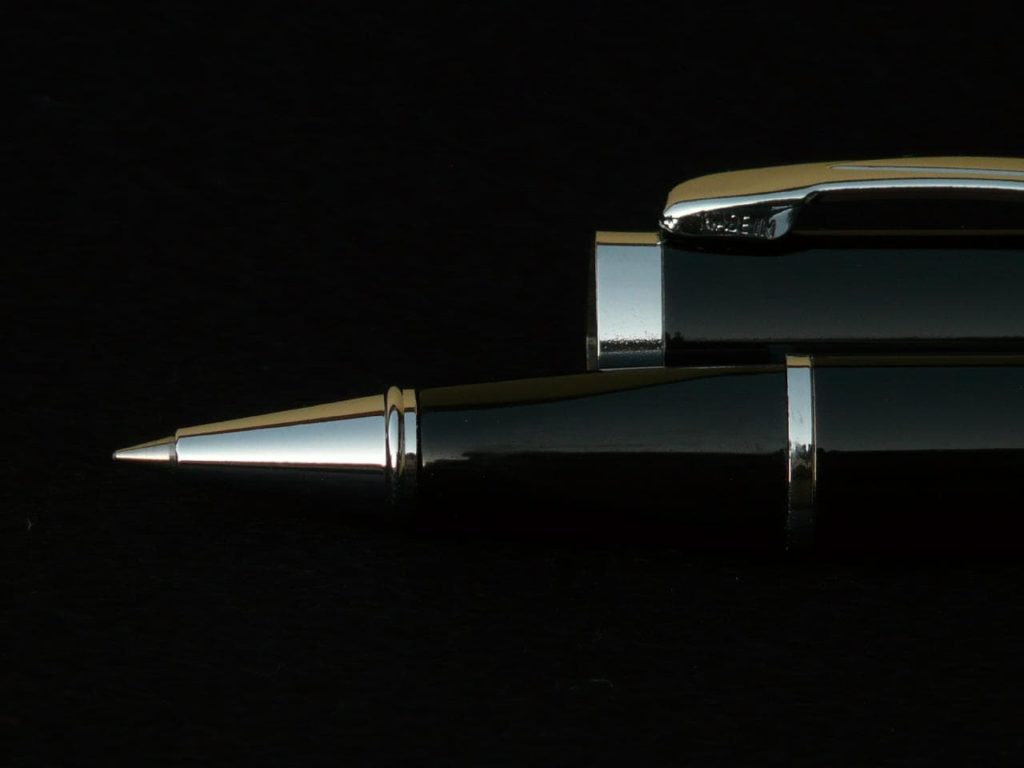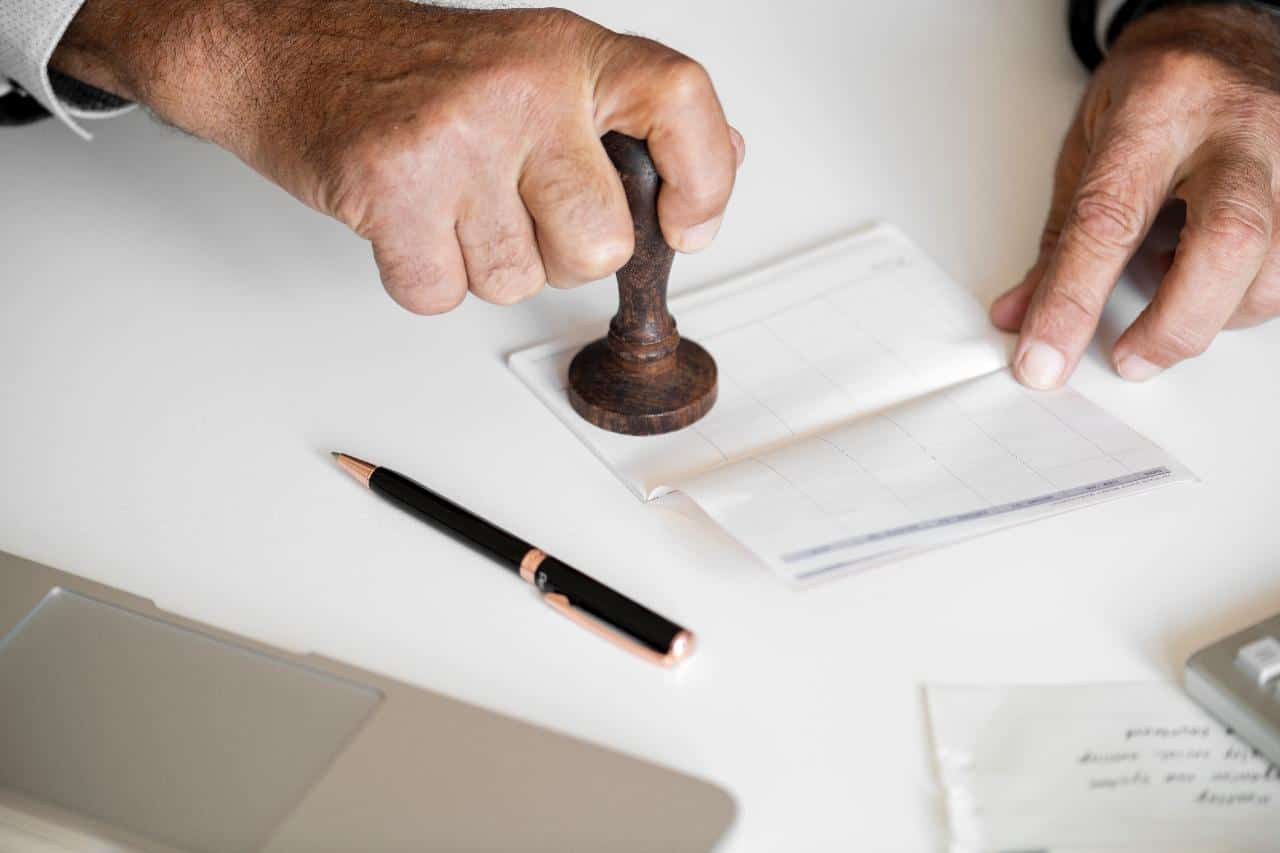Whether getting paid for service rendered or settling a split bill, you might be wondering if it’s possible to give or receive a check and cash it, even if it’s not in your name. The amount is the same, so why go through the hassle of depositing the check and withdrawing money? But is that even possible, and is it legal to cash a check made out to another person?
It is possible to cash a check made to someone else’s name if the named party signs it over to you through an endorsement in full. You can also cash such a check if it has a blank endorsement because this kind of endorsement turns the check into a “bearer instrument” that anyone can cash.
If wondering where to cash a personal check near me and how to do that if it’s not in your name, we have the answers. Keep reading for details on the general rules applicable to cashing checks, as well as an in-depth discussion on how an individual can sign over a check for you to cash.
The General Rules for Cashing Checks
The general rule is that a check can only be cashed by the person to whom it’s made out. As such, it’s next to impossible to cash a check written to someone else without involving them. This is because banks don’t just verify that the correct name appears on the check’s face; they also require proper proof of identity. While the future of money is evolving, cashing a check with someone else’s name on it still requires a process.
Cashing a Check in Your Spouse’s Name
This rule holds even when the check is made out to your spouse and you have a joint bank account. Even though a jointly-held bank account allows both signatories to perform frequent transitions on each other’s behalf, this doesn’t apply to the cashing of checks. If cashing a check made out to the other signatory to a joint bank account, you’d need this person to endorse the check to you so the bank will accept.
If you have separate bank accounts for check cashing, it’s even more difficult to cash a check made out to your husband/wife without involving them. Some banks will decline third party checks and any checks made out to a third party regardless of your relationship with this person.
Others will accept it as long as a special endorsement from your spouse accompanies the check. Still, even with such endorsement, you may be required to have your spouse accompany you to the bank for the transaction.
Cashing a Check in Your Business Name
If the “other name” is your business’s name, you may be able to cash the check independently, depending on the nature of the ownership. If it’s a sole proprietorship, you can cash a check written to your business name without anyone else’s intervention. But if it’s a corporation, limited liability company, or a partnership, you’ll need the business account’s designated signatories to sign the check before you can cash it.
While on the subject of cashing a check made out to a business name instead of your name, it’s worth mentioning that it’s possible to do that even if the business name is a DBA (doing-business-as). That, of course, hinges on whether you’re authorized to cash checks on behalf of the business.
You also need to have an already existing bank account with that DBA name. Such business bank accounts usually require an official DBA notice, so be sure to sort that out.
Normally, a bank will provide starter checks for a business account that’s new.
What Does It Mean When a Check Made Out to Another Person Is Endorsed to You?
Whether you are paying outstanding balance vs. principal balance off, you still need money to pay which sometimes involves check deposits into your account. In the previous section, we discussed that it’s generally impossible to cash a check made out to another person unless the check is endorsed to you. If you’ve been following closely, you’ve probably noticed that we mentioned this phrase a couple of times already.

That’s because it’s the only way you can cash a check that doesn’t have your name in its face. Depending on the endorsement type, you may even be able to cash such a check without involving the person it’s made out to.
So what does it mean when someone endorses a check to you? More importantly, how do you go about it? The answer to this question hinges on the type of endorsement.
There are three types of endorsements:
- A blank endorsement
- A restrictive endorsement
- An endorsement in full.
Depending on the type of endorsement applied to a check, you may be able to cash it even if it’s made out to someone else. Sometimes, you may even do that without involving the designated payee (AKA the person the check is written for). However, you do need to be aware of what time does direct deposit hit for a successful deposit.
To clarify, let’s explore each type of endorsement independently.
A Blank Endorsement
A blank endorsement doesn’t necessarily mean that the endorsement is “blank” per se. Instead, it means that the check is signed to an unspecified payee. This means that anyone holding that check can cash it because the signature essentially turns the check into a bearer instrument.
A bearer instrument is a document that grants the owner (or holder) all rights to the contents. This could be property, banking, bonds, or investments.
Due to the lack of regulations on who can cash a check signed over this way, a blank endorsement check is typically riskier than a check passed over with a restrictive endorsement. Since anyone can cash it, it’s easy to lose money if the check ends up in the wrong hands.
Restrictive Endorsement
With a restrictive endorsement, the person who the check was initially made out to signs it over with the phrase “for deposit only.” Any check endorsed restrictively can only be deposited and never cashed. If the check holder indicates “for deposit only” alongside a bank account number, the check can’t be deposited in any other account except the one appearing on it.
Note: With some banks, the payee may be required to endorse a check with the phrase “for mobile deposit only” for the check to be deposited via a mobile banking app. This is a common trait of advantages and disadvantages of online banking and deposits.
Endorsement in Full
An endorsement in full creates what’s known as a “third-party check.” This type of check can be signed over to someone else, who can then deposit or cash it.
A check endorsed in full will typically have something along the lines of “Pay to the order of” followed by the recipient’s name in the endorsement section. This means that the check has been passed over by the recipient even though it wasn’t originally made out to them.
To illustrate, let’s look at an example. Picture Dave, who receives a regular $1,000 check from Mark. But Dave now owes Steve $1,000, so he decides to sign over one of his routine checks from Mark to Steve to settle that debt.
You see, the check was initially made out to Dave from Mark. But instead of cashing or depositing the check into his account and then writing a new check to Steve, Dave signs over the right to cash it or deposit it into Steve’s preferred account. This, perhaps with some oversimplification, is an endorsement in full in action.
And once you know how to void a check you always have that option if errors arise in the endorsement process.
The difference between this type of endorsement and the other two we reviewed earlier is that:
- While a blank endorsement doesn’t specify who can cash the check, an endorsement in full does.
- Unlike a restrictive endorsement, the person the check is signed over to can cash it.
Which Type of Endorsement Allows You to Cash a Check Made Out to Someone Else?
You can only cash a check that wasn’t initially made to your name if it’s signed over through an endorsement in full or a blank endorsement. You can’t cash a check handed over through a restrictive endorsement because such types can only be deposited.
With a blank endorsement, the check doesn’t necessarily need to be signed over specifically to your name because such checks don’t come with the payee’s name in the first place. As long as it’s already endorsed this way and signed accordingly, anyone who gets their hands on it may cash it without involving the endorser.
How Check Endorsements Works
To help you understand how endorsement works, let’s first review the part of the check where it all happens before we get to the steps.
- On most checks, you’ll find a space on the back designated for endorsement. In this space, there’ll be a few blank lines, as well as an “x” that shows where the person looking to endorse it must sign their name to pass it over to you.
- In that space, there may also be a section labeled “Endorse here” and “Do not sign/endorse/stamp below this line.” The latter warning is included because banks also use the space at the back of a check (slightly below the endorsement, to be specific) for check processing data.
- You don’t want your endorser signing where they aren’t supposed to because this might give your bank a reason to decline the check when you eventually want to cash it. As we’ll see shortly, your bank has no legal obligation to accept endorsed checks.
If you are depositing a tax refund find out if a federal tax refund is taxable so you can plan. Now that we’ve covered where it all happens let’s review the steps involved with the two types of endorsements that allow you to cash a check that’s not in your name.
The Steps for an Endorsement in Full
As we mentioned earlier, you must involve the originally designated payee of the check with this kind of endorsement because they need to sign over the check to you before you can cash it.

The steps involved are as follows:
Verify That Your Bank Accepts a Third Party Check
There isn’t a single law that requires your bank to accept this kind of check because it comes with risks. As such, whether you’ll be able to cash the check at your bank after it’s signed over to you is entirely up to the financial institution’s policy.
Get in touch with your bank, or better yet, visit one of its branches and determine whether a third-party check signed over to you will clear. If the bank accepts such checks, inquire if there are any additional requirements because bank policies vary. For instance, some banks will require both you and the person signing the check over to have/open accounts with the bank.
Other places such as 7-Eleven check cashing won’t allow for this type of transaction.
Contact the Person Signing Over the Check and Arrange To Visit Your Bank
If your bank requires both of you to be physically present, arrange with the individual looking to sign the check over to make an appearance. Even if it isn’t explicitly required, it’ll improve the chances of the check clearing. Be sure to carry proper identification, especially if you didn’t previously have an account with that bank.
Have the Endorser Sign the Check Over to You
Once you’re sure that your bank is okay with a third-party check, you can begin worrying about making sure the person endorsing the check does it in the right way. To avoid complications, you’ll want this person to do the following:
- Sign the backside of the check like they usually do, but (and this is important) keep their signature in the upper part of the endorsement area. If this section has three lines, you want them signing on the top line. You don’t want them taking too much space with their signature, either, because they’ll need the whole area to complete the process.
- Write or print “Pay to the Order Of,” and then follow that up with your name in the second line of the check’s endorsement section. If they don’t have enough space, they can replace “Pay to the Order Of” with “FBO,” an abbreviation for “For the Benefit of.” You’ll also want to ensure that your name is spelled correctly.
Sign the Check
Only do this when cashing or depositing the check. When you do, sign in the third line of the endorsement, just below “Pay to the Order Of” or “FBO.”
If you weren’t present when the endorser signed the check over to you, they might have been kind enough to place an “X” where your signature should go. Many people also attach a reminder to the check to guide you, so be sure to check for these clues to determine the right spot to sign.
Cash the Check As Usual
As long your bank accepts a third-party check, and you followed all the above guidelines (especially the part where both parties should sign), the check should clear the same way as one that was initially made out to you. There are a lot of mobile check cashing apps that don’t use Ingo available.
The Steps for a Blank Endorsement
We’ve already established that this kind of endorsement results in a check with no designated payee that anyone can cash. Signing over a check this way turns it into a piece of paper that anyone who gets their hands on can claim the underlying money.
However, we probably should have emphasized that the check needs to be signed over in the right way for all of this to apply.
The Right Way to Sign Over a Blank Endorsement
What is “the right way” to sign over a check via a blank endorsement? There aren’t too many requirements, but they’re critical nevertheless.
- The endorser signs their name at the back of the check, and the signature should be above the “Do not write below this line” warning.
- The name should be signed with a pen (not a pencil) and should correspond to your official names without spelling errors.
- If it’s a business check, the business’s name needs to appear above your name and not the other way round.
- Add your job title if the business isn’t a sole proprietorship to demonstrate that you’re authorized to endorse the check on the company’s behalf.
Understand that even though you may be able to cash a check endorsed this way when it wasn’t initially meant for you, it’s not always easy unless the endorser isn’t the most careful person. Most people doing blank endorsements typically sign the check at the bank to mitigate the risks of the blank check falling into the wrong hands and getting cashed by the wrong person. Magazines such as Kiplinger’s Personal Finance vs. Money Magazine both would likely cover such topics.
But if the endorser meant to pay you via such a check, it’s generally easier to cash it than a third-party check. It’s not uncommon to find a bank that declines a third-party check but accepts a check with a blank endorsement.
Is It Convenient To Have a Check Signed Over to You As Payment?
Put bluntly, no. Having a check signed over to you, whether through a blank endorsement or an endorsement in full, isn’t always the most convenient way to receive payment. You can check out other options such as places to get a money order near me. Just be careful for money order scams if you elect to go this route.
If the person signing the check as payment has a bank account, it’s more convenient to have them cash or deposit the check and then write a fresh one made out to you. Life will be easier for both parties because you won’t need to go to the bank (which is almost always the case with a third-party check) or go through the hassle of inquiring about any other procedures that may be required.

The other alternative may be to have the funds wired to you through electronic money transfers or a service like PayPal.
But if the endorser doesn’t have a bank account, already has a check that’s in their name, and wants to use it to pay you, then signing it over can be an option. There are other places such as Walmart to cash checks, but follow the Walmart check cashing policy to see if it’s an option.
Related Questions:
How Can I Cash a Check Instantly Online?
Some places have instant online check cashing services. You can find these by searching for “instant check cashing” or “cash a check instantly.”
Can You Cash a Friend’s Tax Refund?
Yes, but if the friend owes money to the IRS for back taxes, you should not cash their check. You could get in trouble with federal law enforcement agencies and face penalties that may include jail time and civil sanctions.
Does a Cashier’s Check or a Certified Check Clear Faster?
When comparing a cashier’s check vs. a certified check, it’s the cashier’s check that wins. A cashier’s check clears faster because it’s a type of check that the bank is using to make funds available.
On the other hand, a certified check can take one or two weeks for clearance because it requires additional verification from government agencies like the Department of Treasury.
Summing Up
In a nutshell, we’ve established that the only way to cash a check made out to someone else is if that person signs it over to you. This is typically done through an endorsement in full or a blank endorsement, but it’s not the most convenient way to receive payment through a check.
If the other party has a bank account, it would be easier to have them cash it and then write you a check made to your name. Hopefully, that clarifies things for you.



